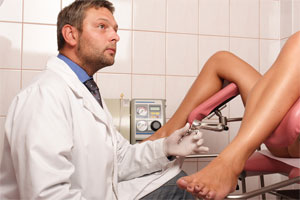1. Questions about becoming a nurse practitioner
2. How to make studying (or other boring things) fun

Q: Thanks for taking the time to read this and hopefully you can enlighten me a bit. I'm thinking of going into nursing. I have a bachelor's degree in English, so I'm planning on entering the masters direct entry program at UCSF (assuming they accept me) and then come out as a nurse practitioner, maybe with a specialty in acute care. Could you tell me what the different roles are of a registered nurse versus a nurse practitioner in the emergency room? I'm questioning whether or not I should even go into this field because I find myself looking at people on the street, in restaurants, wherever, and thinking, "Would I really want to touch that person if I had to?" That sounds weird, but it's honest. I think I want to go into nursing because I do enjoy working with a variety of people, I think I'm empathetic enough to be good at it, the pay seems decent, I won't have to work at a desk all day, there are so many different things you can do with that degree (right?) and when I think of people vomiting all over me and other such scenarios, I think "Well, at least it's not boring." A professor at UCSF has offered to talk to me about the profession, but the more information I can gather, the better.
Thanks and hope to hear from you soon.
Jenny
Answer by Kevin Pezzi, MD: I didn't know that it is possible to become a nurse practitioner (NP) without becoming a nurse. I mentioned this to one of my friends, an experienced nurse who is thinking of becoming an NP. She also never heard of anyone who followed such an abbreviated career path, but some schools do offer that option—regrettably, she thinks, because she opines that there is no substitute for a good educational and experiential background, both of which she believes could be shortchanged by the accelerated program. However, the UCSF program seems rigorous, so I think that if you are shortchanged at all, it would be more in terms of experience than didactic education.
In an ER, the primary difference between a nurse practitioner and a registered nurse (RN) is that an NP can function more independently in terms of diagnosing and treating patients.
> I'm questioning whether or not I should even go into this field because I find myself looking at people on the street, in restaurants, wherever, and thinking, "would I really want to touch that person if I had to?" That sounds weird, but it's honest.
I congratulate you for having the foresight to consider one of the inevitable realities that prospective healthcare providers often overlook. I wish that I could allay your concern in this regard, but honesty compels me to do the exact opposite. As a physician, I (and the nurses who worked with me) have seen things that are unimaginable to most people. Here is an excerpt from one of my free books of ER stories (the first part isn't germane to this topic, but it helps to introduce the material that follows):
You think I'm blunt? In comparison to some of my colleagues, I'm the epitome of decorum. Some of their comments have left me—even me—reeling in disbelief that they'd have the temerity to say such a thing. For instance . . . .
It was around shift-change time. I was coming on duty for the night shift, and Jill, the ER physician who'd worked the preceding shift, was preparing to leave. We were standing in the nursing station, discussing who-knows-what, when an elderly lady was wheeled into the ER on an ambulance stretcher. She was about 100 years old, but didn't look it. She looked 200, if that were possible. I've seen my share of centenarians, and I've never suffered from the delusion that 100 years of life didn't excuse a whole lot of wrinkles, sags, and bags. Still, when I saw her, I was shocked. Shocked that she was still alive. Shocked that I'd soon be faced with the task of extending a life that seemed to be already overextended. But I was mute. Typically, Jill was not. “She's a f-----g fossil! What the hell does she want us to do? Save her? She should have been dead when Eisenhower was President!”
And then there is Jack. Jack is a nurse whose behavior and speech would ordinarily warrant a depiction of its being in a class by itself, except that I've met several others who were equally outspoken. What triggered this latest outburst was an ER patient named Linda who, unfortunately, complained of pelvic pain. Unfortunate for me, since this necessitated doing a pelvic exam.
Contrary to popular notion, virtually all sane doctors do not relish such exams. Doctors who are looking for titillation at work are looking for trouble. Even when my sex life seemed perpetually on hold, I'd never get a vicarious thrill from doing a pelvic exam, especially from someone like Linda, who could spin a dial on a bathroom scale past the zero mark twice, and who sported more fur on her forearms than did most lumberjacks.
Then it hit me. No, not some brilliant genetic diagnosis to explain her appearance. What hit me was the stench of rotting yeast. Not a vaginal yeast infection, but what's termed candidal inframammary and infrapannicular intertrigo. Let's not get hung up on big words—it's just a yeast infection of the skin in the folds beneath the breasts and the apron of fat hanging over her lower belly. If you've never encountered such a thing, count yourself among the lucky. To put it succinctly, it's gross. It's also a slimy, pasty oozing of yeasty pus, which justifies the former characterization.
Having been trained in Detroit, where soap is apparently a four-letter word, I'd seen it before, and my dinner was in no immediate danger of retrograde expulsion. Poor Jack was spared the sight of the fetid fungal intertrigo, but who could ignore her teeth? Or, more precisely, what was left of them. Stumps, black stumps, coated with the requisite pus. A few spindly teeth remained, and one—loose in its socket—nauseatingly flapped back and forth when she spoke. Not surprisingly, her breath was a tad less appealing than that of a bear who'd just polished off a mound of sun-ripened carrion. Then she dropped the bombshell, mentioning that she'd had a baby a few months ago. Jack's face contorted in disbelief, and he darted out of the room. I followed. “Who on Earth could go to bed with that?” he asked rhetorically. “She's a Neanderthal! She's disgusting! There isn't enough booze in the world to get me drunk enough to sleep with her! How could anybody do it?” Except for postulating a similarly endowed male, I was equally stumped.
Back to the pelvic exam. I entered the room with more than my usual level of trepidation, and three layers of gloves. I thought I was adequately protected. In most circumstances, I would have been, but not with Linda. During the procedure she clamped her thighs together, and I was sandwiched in between. Disconcertingly, this almost made me fall forward, onto the intertrigo slime. Quicksand would have been a kinder fate.
“Let me go!” I implored. She squeezed harder, and I began losing my balance, and my patience. Deciding that the time had come to set aside physician propriety, my instinct for self-preservation took over. Using all of my strength, I spread my upper arms, which released the pincer grip of her gelatinous thighs, allowing me to free myself. Stepping back, I was sweating, but yeast-free.
Incidentally, this occurred in an ER in an upscale golfing and tourist area, not some inner-city emergency department. I used to wonder where such people hid when they weren't in the ER, because when I'd walk around that town, people generally looked like they stepped out of a Lands' End catalog. But ERs tend to attract folks who don't (or can't) give much thought to basic hygiene. My point? Visual (and olfactory) revulsion is something you're bound to face as a healthcare practitioner, especially in an acute care setting. After years of being acclimated to a variety of nauseating stimuli, I developed a strong stomach. However, my tolerance for revolting things would occasionally meet its match when I'd smell odors that made feces seem downright pleasant in comparison. I could walk in a room feeling fine, and start vomiting a minute later. As part of my training, I worked in the Wayne County Medical Examiner's office, but, strangely, none of the dead bodies—not even the really ripe ones—smelled nearly as repulsive as a few patients I had in the ER. One ER patient was "merely" dirty, but after months without a bath and with bacteria fermenting in his sweat during a hot Detroit summer, trapped against clothes and bed sheets that may never have been washed, that produced a smell so atrocious that I can't begin to describe how sickening it was.
> . . . there are so many different things you can do with that degree (right?)
Yes.
> . . . and when I think of people vomiting all over me and other such scenarios, I think "well, at least it's not boring."

Can boring things be made
to seem pleasurable? Yes!
You brought up a good point. So much of what we do in life is motivated by our desire to seek pleasure and avoid boredom. Pleasure has many facets, including rewarding occupational endeavors. What's interesting to me is that it is possible for a person to deliberately manipulate his or her level of perceived pleasure so that virtually anything that's boring can seem more appealing if not downright fun. I discuss some ways to do this in Fascinating Health Secrets, and I will expand on this in The Science of Sex and other books.
This isn't rocket science, either. Nor is it difficult to achieve. The perception of pleasure is a subjective mental construct generated by the brain and open to myriad influences. I am mystified why our culture does so little to teach people how pleasure can be maximized. We give lip service to pleasure, but naively act as if it were something that fell from the sky. Or we may simplistically assume that doing certain things will inevitably lead to pleasure. Not usually. Our brains are too parsimonious when it comes to doling out the neurotransmitters, such as dopamine, that give us pleasure. Even if things initially seem pleasurable, that enjoyment often soon fades.
Unfortunately, our leaders are usually folks with second-rate IQs and with evidently little capacity for learned introspection and the benefits afforded by it. These leaders are oblivious to the fact that amplifying pleasure is good for society, not just individuals. Why? Because people inevitably seek pleasure, sometimes in ways that lead them morally, ethically, and legally astray. Their misguided search for pleasure can also damage their health, such as by eating the wrong foods, drinking, or using drugs. Our leaders demonstrate frighteningly little insight into how these universal problems can be combated. The common element in their "Just say no" type of suggestions is an ignorance of the fact that being told not to do something does not erase the impetus for it. At best, it creates a behavioral void of pleasure that the brain attempts to satisfy in some other way—and that way is often misguided, too.
Leaders may incorrectly assume that "the masses" are too stupid to understand anything but simplistic messages, so they deliver motivational propaganda that could have been conceived by a kindergartner. The results are predictably abysmal. What's needed is a President, Surgeon General, or someone with a bully pulpit, who can offer appealing alternatives or ways to make boring things seem pleasurable. But don't hold your breath waiting for our leaders to suggest simple but innovative ways to have a better life.
Q: Thanks for taking the time to respond to me so quickly.
Through the accelerated program, I believe after the first year you sit for the RN exam and then the next two years you study for your specialty, work in the hospital and then take the Nurse Practitioner exam at the end. The program is indeed rigorous, and F*&#$%ing expensive to boot.

I've never heard of any healthcare practitioner
who enjoys performing pelvic or rectal exams,
but someone must do them, correct? (The model
depicting the doctor in this photo is fortunate
enough to be "examining" another model.
Real doctors aren't usually that fortunate.)
As for Jack and Jill, did you think about hauling off and slapping them both? They sound mean. In spite of that, honesty is what I need as my decision has to be as informed as possible. Much appreciated. The story you gave is enlightening and coincidentally, leads me to ask you what I've been asking myself: Is there any way to work as a nurse practitioner and only have to deal with matters from the waist up and mid-thigh down? Shallowly enough, it may all be boiling down to that for me. Maybe I should question my motivation for wanting to go into nursing and believe me, I am, but honestly, who really goes into the healthcare profession because they "want" to give pelvic exams or perform bowel disimpactions??? There has got to be some other burning desire. Do you have any thoughts about that?

Want to earn $1000?
who finds a source that presents
better, easier, safer, and more
pleasant ways to lose weight
than the tips in the current
edition of my FREE weight loss book.
A: Nurse practitioners can specialize in:
- Acute Care
- Adult Health
- Family Health
- Gerontology Health
- Neonatal Health
- Oncology
- Pediatric/Child Health
- Psychiatric/Mental Health
- Women’s Health
Nurse practitioners can also practice in these sub-specialties:
- Allergy & Immunology
- Cardiology
- Dermatology
- Emergency
- Endocrinology
- Gastroenterology
- Hematology & Oncology
- Neurology
- Occupational Health
- Orthopedics
- Pulmonology & Respiratory
- Sports Medicine
- Urology
Of the above specialties, only Psychiatric/Mental Health practitioners can avoid dealing directly with the pelvic area once they begin working in that field. However, during their preceding general training, they are bound to have clinical exposure to some genital and rectal aspects of nursing practice.
Q: Sounds like you enjoy reading books about ER stories and I've read some similar books myself, and some are good, but for the most part, not that well written (I haven't read yours yet, so it's not included in that opinion). Atul Gawande wrote an excellent book about medicine entitled Complications. He's a surgeon and also writes for the New Yorker. Bravo!!
A: Yes, I truly enjoy reading ER stories books (I reviewed them on my other site). I read Complications and thought that it was superb.
BTW, I forwarded your message to the president of a nursing association for her response. She wrote to me a few months ago, so I thought that she might wish to answer your questions, too. Here is my message to her:
Dear -------:
One of your associates suggested to me that I refer questions regarding nursing to you or some nursing organization for their response. I received the following question from a reader who gave me permission to forward it to you for a response. If you are kind enough to do that, I will gladly post your answer on my site, and perhaps publish it in an upcoming book, so that others can have the benefit of hearing your point of view.
Thank you for your cooperation in helping to educate the next generation of healthcare practitioners.
Kevin Pezzi, MD

Other sex books discuss sexual
positions and how to put on
condoms—as if you can't figure that
stuff out yourself! In contrast, Dr.
Pezzi's The Science of Sex explains
how you can increase your libido so
you're burning with passion, have
more intense sexual pleasure, longer
and more frequent orgasms, and a
body that looks great on the beach,
or in the bedroom.
Over four years later, I still haven't heard from her. Nor have any other nurses who offered to answer questions sent to me actually done that. In a nutshell, what they basically said was, "We sometimes disagree with what you say about nurses and nursing*, so when you receive such queries in the future, how about forwarding them to us instead of answering them yourself?" (*Because I won't spin the truth to give the whitewashed propaganda that conforms with their agenda.)
I've spent years answering countless questions. Had I worked instead of doing that, I could have bought another home, land, tractors, bulldozers, tools, and all sorts of stuff that I'd like to buy. I would also be much closer to fulfilling one of my major goals in life, which is to start an orphanage. I appreciate the gratitude that many of you have expressed, but if you really want to thank me and encourage me to answer more questions in the future, the best way to do that is to buy one of my books.

